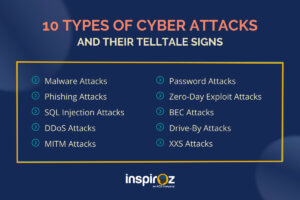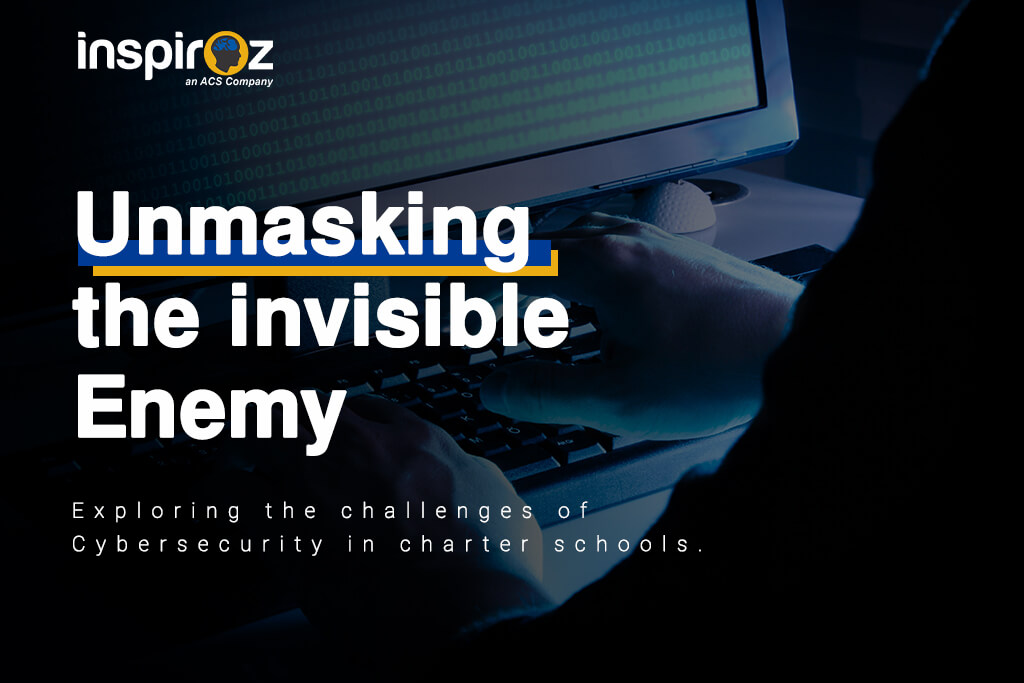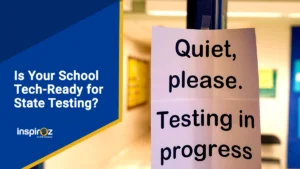Unmasking the Invisible Enemy: Exploring the Challenges of Cybersecurity in Charter Schools
Introduction to Cybersecurity in charter schools
Charter schools have become an increasingly popular choice for parents seeking alternative education options for their children. These schools offer unique learning environments and innovative teaching methods. However, along with these benefits come the challenges of ensuring a secure and safe digital landscape for the students, staff, and administration. In today’s digital age, cybersecurity has become a critical concern for charter schools. This article aims to shed light on the various challenges faced by charter schools in maintaining robust cybersecurity measures.
The Importance of Cybersecurity in charter schools
Cybersecurity is not a luxury; it is a necessity. Charter schools, like any other educational institution, store a vast amount of sensitive data, including student records, financial information, and confidential documents. Protecting this data from cyber threats and unauthorized access is paramount. A breach in cybersecurity can have severe consequences, such as identity theft, financial loss, and reputational damage. Moreover, charter schools have a responsibility to ensure the safety and privacy of their students, and a robust cybersecurity system is an essential component of fulfilling this duty.
To emphasize the significance of cybersecurity, it is essential to understand the potential risks charter schools face. Cyberattacks can come in various forms, including malware, ransomware, phishing attacks, and denial-of-service (DoS) attacks. These threats can lead to data breaches, system disruptions, and financial loss. It is crucial for charter schools to be proactive in identifying, preventing, and mitigating these risks through comprehensive cybersecurity measures.
1. Common cybersecurity threats in charter schools
Charter schools are not immune to the ever-evolving landscape of cyber threats. One common threat is phishing attacks, where cybercriminals send deceptive emails or messages to trick individuals into revealing sensitive information or clicking on malicious links. These attacks can compromise the entire school network and expose confidential data.
Another prevalent threat is ransomware, which encrypts school data and demands a ransom for its release. Falling victim to a ransomware attack can disrupt school operations, compromise student records, and incur substantial financial costs.
Additionally, Distributed Denial of Service (DDoS) attacks pose a significant threat to charter schools. These attacks overwhelm the school’s network, rendering it inaccessible and disrupting online learning. Such attacks can severely impact the educational experience of students and cause reputational damage to the school.

2. Cybersecurity Measures and best practices for charter schools
To combat the myriad of cyber threats, charter schools must implement comprehensive cybersecurity measures and best practices. A multi-layered approach is crucial to safeguarding sensitive data and maintaining a secure digital environment.
Here are some recommended measures:
- Regular staff training: Educating staff about cybersecurity best practices, such as identifying phishing emails and using strong passwords, is essential. Staff should be trained to recognize potential threats and know how to respond appropriately.
- Secure network infrastructure: Charter schools should invest in robust firewalls, intrusion detection systems, and antivirus software to protect their network from unauthorized access and malware attacks.
- Data encryption: Encrypting sensitive data ensures that even if it falls into the wrong hands, it remains unreadable. Charter schools should implement encryption protocols for all confidential information stored on their systems.
- Regular system updates: Keeping software, operating systems, and applications up to date is crucial for patching vulnerabilities and preventing exploitation by cybercriminals. Regular updates should be scheduled and implemented promptly.
- Backup and disaster recovery: Creating regular backups of critical data and implementing a disaster recovery plan can help charter schools quickly restore their systems in the event of a cybersecurity incident.
By adopting these measures, charter schools can significantly enhance their cybersecurity posture and minimize the risk of cyber threats.
3. Challenges and Limitations in implementing cybersecurity in charter schools
Despite the importance of cybersecurity, charter schools often face numerous challenges and limitations in implementing robust cybersecurity measures. Budget constraints can be a significant hurdle, as allocating funds to cybersecurity initiatives competes with other educational priorities. Limited resources may result in outdated or inadequate security infrastructure and a lack of skilled personnel to handle cybersecurity issues effectively.
Furthermore, charter schools may struggle with the technical complexity of cybersecurity. The rapidly evolving nature of cyber threats requires continuous monitoring, updating, and adapting security systems. Without dedicated IT personnel or external support, charter schools may struggle to keep up with the latest cybersecurity practices and technologies.
Additionally, the diverse nature of charter schools poses a challenge in developing standardized cybersecurity policies. Each school has its unique structure, curriculum, and IT infrastructure, making it difficult to implement a one-size-fits-all approach. Tailoring cybersecurity measures to meet the specific needs of individual charter schools can be time-consuming and resource-intensive.
4. The Role of staff and students in maintaining cybersecurity
Effective cybersecurity is a collective responsibility that extends beyond the IT department. The role of staff and students in maintaining a secure digital environment cannot be overstated. Staff members should be vigilant in identifying and reporting potential threats, ensuring that they follow best practices in password management and data protection.
Similarly, students must be educated about cybersecurity risks and given guidance on safe internet practices. Incorporating cybersecurity education into the curriculum can help foster a culture of cybersecurity awareness and empower students to protect themselves and the school’s digital assets.
5. The Impact of cybersecurity breaches on charter schools
A cybersecurity breach can have far-reaching consequences for charter schools. Beyond the immediate financial and operational implications, breaches can erode the trust of students, parents, and the wider community. The loss or exposure of sensitive student data can also lead to legal and compliance issues.
In addition to reputational damage, cybersecurity breaches can disrupt the learning environment. Downtime caused by system disruptions or data loss can hinder educational activities, impact student progress, and create a sense of insecurity among stakeholders. The psychological impact on students and staff should not be underestimated.
6. The cost of Cybersecurity in charter schools
Investing in cybersecurity comes with a price tag. Charter schools must allocate resources to develop and maintain robust security systems. This includes hardware, software, training programs, and hiring skilled IT personnel or outsourcing security services.
While the initial investment may seem substantial, the cost of not investing in cybersecurity can be much higher. The financial losses resulting from a cyberattack, coupled with reputational damage and potential legal ramifications, can far outweigh the cost of implementing effective cybersecurity measures.
7. Resources and support for Cybersecurity in charter schools
Recognizing the unique challenges faced by charter schools, various resources, and supports are available to assist in enhancing cybersecurity measures. State and federal agencies often provide guidelines, frameworks, and best practices tailored to the education sector. These resources can serve as valuable references for charter schools seeking to develop or improve their cybersecurity strategies.
Additionally, partnerships with cybersecurity firms or IT service providers can offer specialized expertise and support. External consultants can conduct audits, and vulnerability assessments, and provide recommendations for improving cybersecurity posture. Moreover, collaboration with other charter schools or educational networks can facilitate knowledge sharing and collective efforts to address cybersecurity challenges.
Conclusion: The ongoing battle for cybersecurity in charter schools
In today’s digital landscape, charter schools face a constant battle to protect sensitive data, maintain system integrity, and ensure the safety of students and staff. Cybersecurity must be a top priority for charter schools, as the consequences of a breach can be severe and far-reaching.
By implementing comprehensive cybersecurity measures, educating staff and students, and seeking external support, charter schools can enhance their resilience against cyber threats. Although challenges exist, investing in cybersecurity is a necessity for charter schools to fulfill their duty of providing a safe and secure educational environment.
As technology continues to advance, the battle for cybersecurity in charter schools will be ongoing. Remaining vigilant, adapting to new threats, and embracing best practices will be crucial in safeguarding the digital landscape of charter schools and ensuring the well-being of all stakeholders.
Protect your charter school from cyber threats and secure your students’ future. Invest in comprehensive cybersecurity measures today.
Learn More >>







